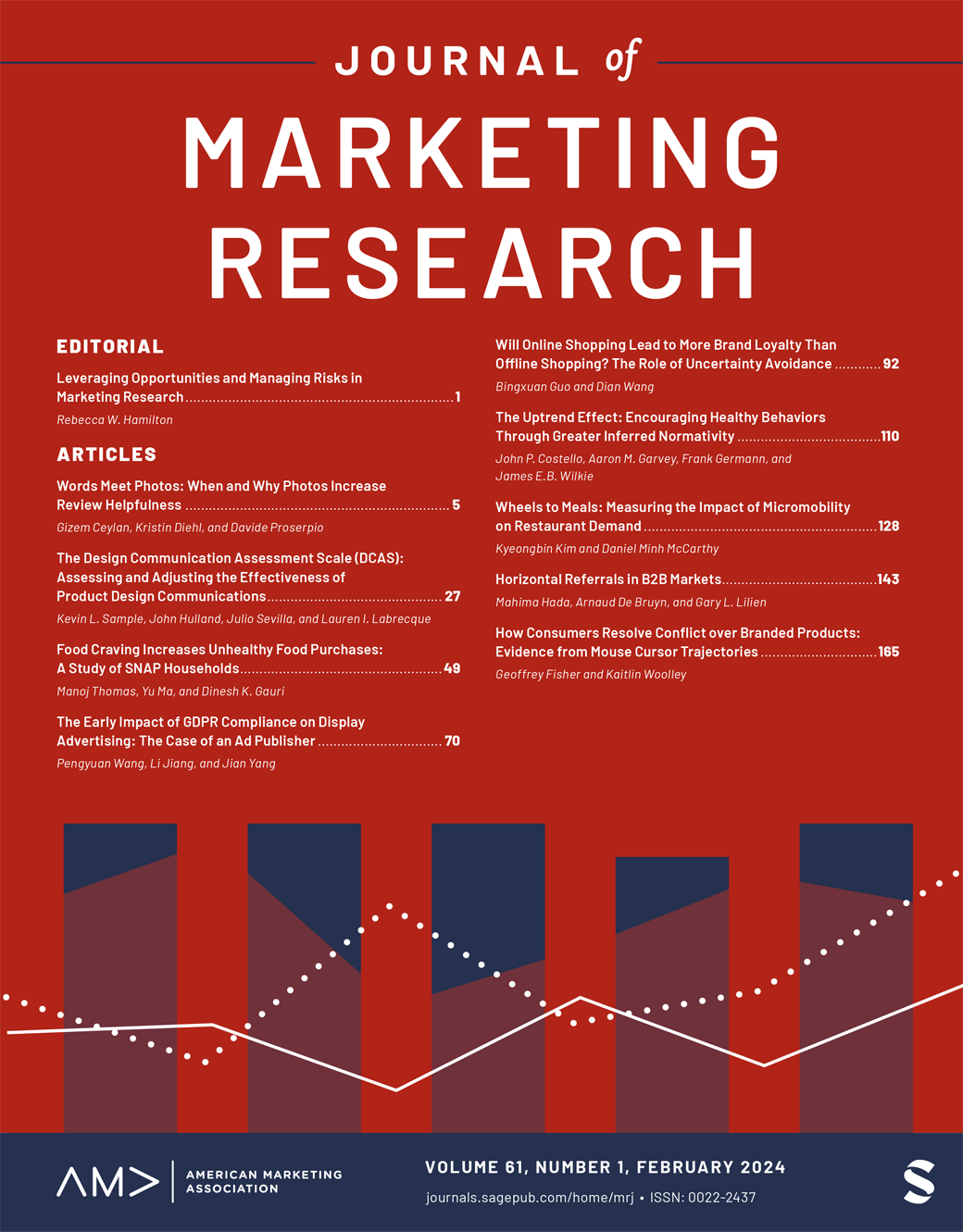表达:过去不完美还是现在完美?动态排名如何影响消费者认知
IF 5
1区 管理学
Q1 BUSINESS
引用次数: 0
摘要
消费者如何解读实体排名的变化?虽然排名榜无处不在,但对动态排名的研究却很有限。通过七项研究(包括一项网络数据研究和一项谷歌 AdWords 现场实验),本研究表明,与排名变化信息相关的心理动力解释了为什么消费者对排名上升给予奖励,而对排名下降给予惩罚。这些影响受实体性质、消费者对排名变化原因的认知以及排名列表性质等因素的调节。当排名变化归因于列表中的其他实体、实体被认为不可并列或列表更新更频繁时,排名变化的影响就会减弱。调查通过证明消费者不会将排名变化的方向推断到未来的特定情况,确定了影响的一个重要边界条件。除了对理论有所贡献外,这项研究还为管理者提供了可操作的见解,并展示了管理者沟通动态排名的实用方法,以提高排名提升带来的收益或减轻排名下降带来的惩罚。本文章由计算机程序翻译,如有差异,请以英文原文为准。
EXPRESS: Past Imperfect or Present Perfect? How Dynamic Ranks Influence Consumer Perceptions
How do consumers interpret changes in the rank of an entity? While ranked lists are ubiquitous, research on dynamic ranks has been limited. Across seven studies (including a study with web data and a Google AdWords field experiment), this research shows that psychological momentum associated with the rank change information explains why consumers reward a rise in rank and penalize a decline in rank. The effects are moderated by factors pertaining to the nature of the entity, consumers’ perception of the reason for the rank change, and the nature of the ranked list. The impact of changing rank is attenuated when the rank change is attributed to other entities on the list, when entities are considered non-malleable, or when the list is updated more frequently. The investigation identifies an important boundary condition for the effect by demonstrating a specific case in which consumers do not extrapolate the direction of a change in rank into the future. In addition to contributing to theory, this research provides actionable insights for managers and demonstrates practical ways in which managers can communicate dynamic ranks to enhance the benefit of an improvement in rank or attenuate the penalty from a decline.
求助全文
通过发布文献求助,成功后即可免费获取论文全文。
去求助
来源期刊

Journal of Marketing Research
BUSINESS-
CiteScore
10.30
自引率
6.60%
发文量
79
期刊介绍:
JMR is written for those academics and practitioners of marketing research who need to be in the forefront of the profession and in possession of the industry"s cutting-edge information. JMR publishes articles representing the entire spectrum of research in marketing. The editorial content is peer-reviewed by an expert panel of leading academics. Articles address the concepts, methods, and applications of marketing research that present new techniques for solving marketing problems; contribute to marketing knowledge based on the use of experimental, descriptive, or analytical techniques; and review and comment on the developments and concepts in related fields that have a bearing on the research industry and its practices.
 求助内容:
求助内容: 应助结果提醒方式:
应助结果提醒方式:


